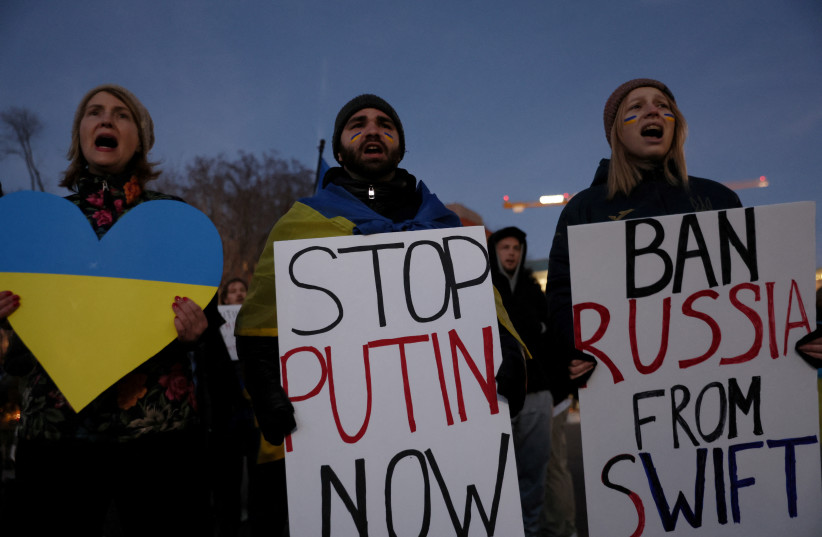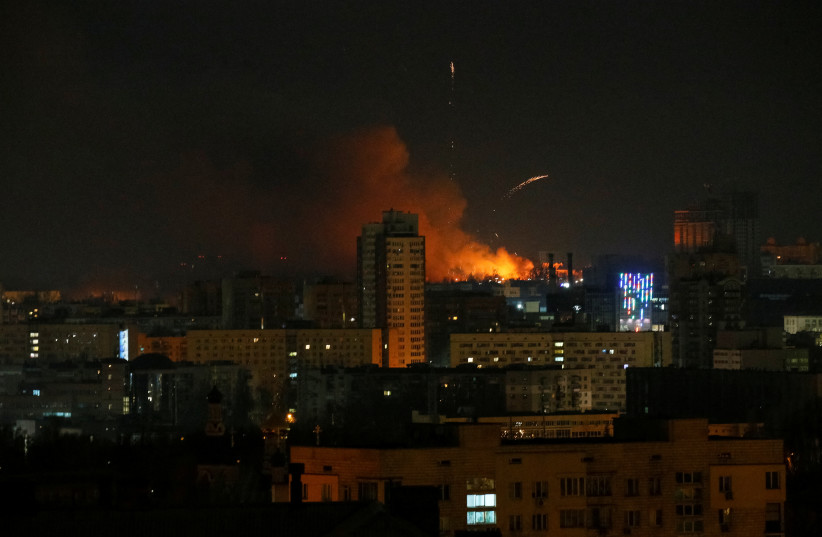Russia has lost a vote at the UN over its war on Ukraine and its attempt to annex territories illegally acquired in that war.
The UN General Assembly adopted a resolution that condemns Russia's "illegal so-called referendums" in regions within Ukraine's internationally-recognized borders, the UN said after the vote. The resolution demands that Russia reverses its annexation declaration.
Countries in the Middle East generally voted to condemn Russia, illustrating that although the region may have qualms with US foreign policy, at the UN they can mostly agree on something. Iraq, Saudi Arabia and others all voted to condemn.
On the face of it, this is a big reversal for Moscow. Only four countries voted with Russia: Syria, Nicaragua, North Korea and Belarus. Russia was able to get 35 countries to abstain, however, and some countries didn’t vote at the meeting, such as Iran, Venezuela, Azerbaijan, El Salvador, Equatorial Guinea and Burkina Faso.
It would appear that this is a strategic choice for Venezuela and Iran, since they support Russia. Turkey, a friend of Russia and also of Ukraine, voted to condemn Moscow. Meanwhile, Turkish President Recep Tayyip Erdogan is meeting with his Russian counterpart President Vladimir Putin in Kazakhstan this week on the sidelines of the CICA summit.

Iran is also meeting with Qatar, which means that Russia will once again get to be at the center of a meeting in Central Asia alongside other authoritarians. Moscow was last in the spotlight when it attended the SCO meeting in Uzbekistan.
The vote at the UN could illustrate that Russia is losing international backing and justifications for its war in Ukraine. Moscow has generally enjoyed impunity at the UN; it likes to adopt the robes of international law and historically played a role in processes such as the Astana meetings for peace in Syria, as well as being part of the Quartet for peace between Israel and the Palestinians.
But a country that engages in an illegal invasion scuppers some of its pretense of legality. Russia is losing some of the countries that might have abstained in the past; this is a gain for the Biden administration and Western democracies.
However, notably absent from the alliance of countries that are condemning Russia are some important global economies – such as China and India, which abstained.
Did Russia receive any votes of support?
Russia also got inroads in Africa in Algeria, Burundi, Congo, the Central African Republic, Eritrea, Ethiopia, Namibia, Mali, Sudan, South Sudan, South Africa, Togo, Tanzania and Zimbabwe. It also got quiet support in Central Asia as Tajikistan, Kyrgyzstan, Kazakhstan and Uzbekistan abstained – and Turkmenistan didn’t vote. Afghanistan voted to condemn Moscow, but Pakistan abstained. Russia also got Bolivia and Cuba to abstain.
What this means is that Russia still has a hold over some countries in the Global South, some former allies from the Cold War and also countries that were once in the non-aligned movement. Moscow couldn’t shift Serbia or Hungary, which both voted to condemn, but it got Vietnam and Thailand to abstain.
If one were to map the countries that abstained by population, it appears that many of the more populous countries in the world abstained, such as China, India, Pakistan, Ethiopia and Vietnam.

At the same time, the fact that the US couldn’t get democracies such as India and South Africa on its side shows that the Biden administration has work to do in the world. The US has also lost influence in Central Asia and seems to face ambivalence in some areas of Southeast Asia, the Caucasus and parts of Africa and South America.
Nevertheless, the showing at the UN illustrates that many countries oppose Russia’s annexation and are willing to go on record at the UN to condemn Moscow. Although this is a success for the West and the US – and for democracy and the rule of law – much work remains.
